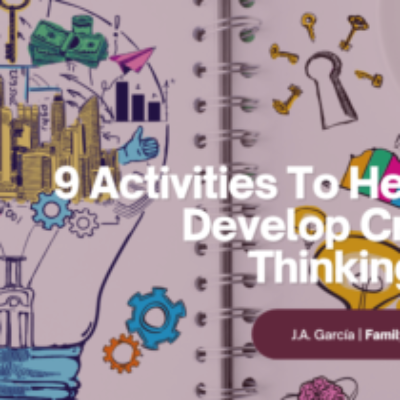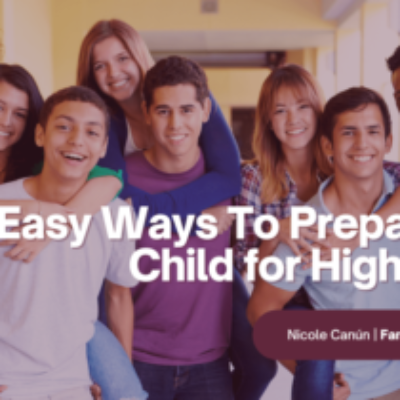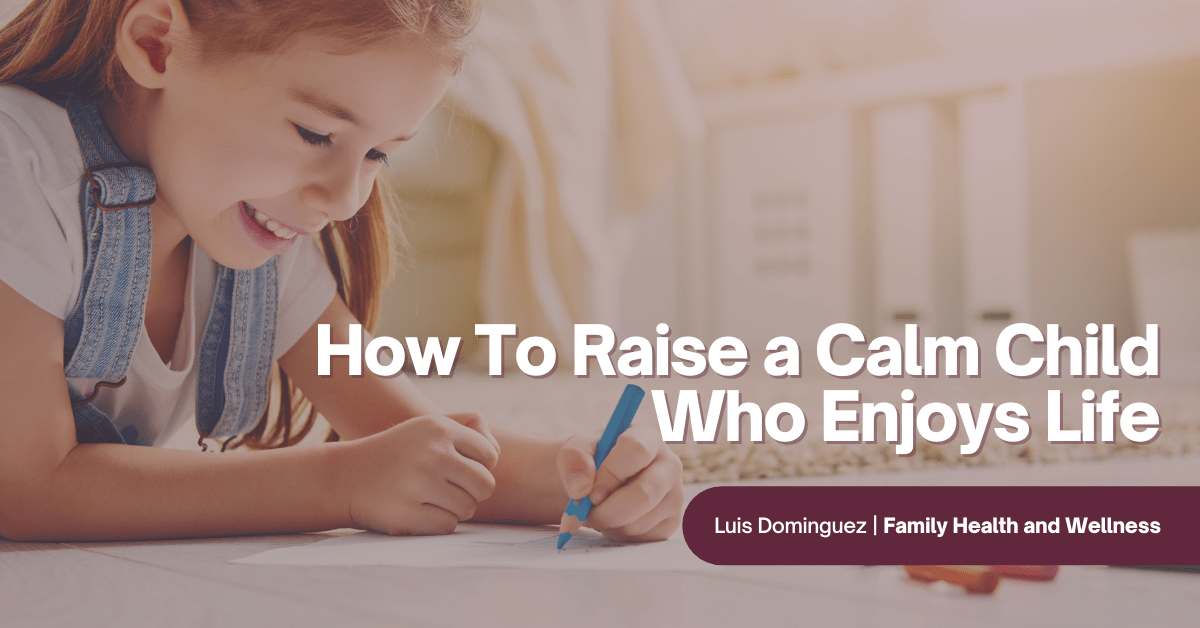
How To Raise a Calm Child Who Enjoys Life
Raising a calm child has become an important goal these days. Modern life is just too stressful and chaotic sometimes—and our kids get affected by this in different ways.
Children develop anxiety more easily in the world of today and you’d be surprised to learn how widespread this illness is among kids and teenagers.
To fight back, we need to focus on building safe environments where our children can grow in calmer ways.
Keep reading to learn all about the benefits of raising a calmer child, what anxiety can do to children, and different ideas on how to raise a calmer child.
Who Is Homeschool Spanish Academy?
We’re an online Spanish school committed to empowering parents and their children to live happier lives, enjoy stronger learning outcomes, and experience real success. Learn more about our classes. ➡️
TABLE OF CONTENTS
Calm Children Learn Better
As parents, we all want our children to grow happy and calm—but that’s easier said than done.
In fact, anxiety affects about 20% of children and teenagers who are deeply susceptible to the impact of stressful events that “affect the way [they] think, act, and feel.”
Now more than ever, it’s crucial we do our best to raise calm-natured kids.
According to renowned psychologist Daniel Goleman, “happy, calm children learn best.” And in Australia, researchers have found that a calm and consistent environment improves learning outcomes suggesting that “children need to feel safe to learn.”
So, a calmer child isn’t only happier, but also learns better. Why wouldn’t you do everything in your power to raise your children in a calmer environment?
I agree with you—it’s time to do something about it.
But what would happen if we didn’t?
What Does Anxiety Do To Children?
To put it simply, anxiety “makes children irritable and angry,” afraid of school, and provokes troublesome sleep habits among other symptoms. Ultimately, anxious children suffer “significant disruption in their lives” and deal with more difficulties at school.
But wait—there’s more.
Researchers found anxiety negatively affects children’s working memory and thought processing. In other words, anxious children aren’t just “less happy,” but also struggle to learn and to process new ideas.
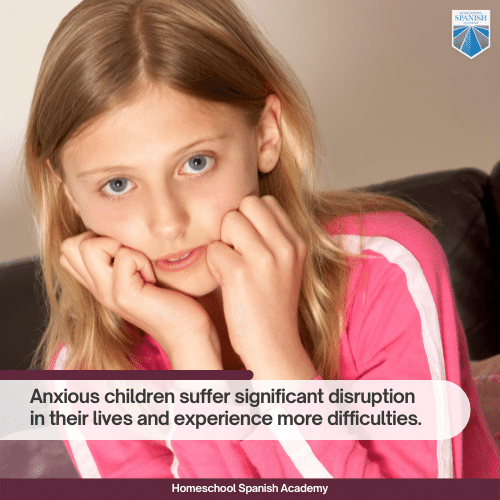
How To Raise a Calm Child
You’re ready to turn this ship around and help your child to be calmer and happier. To accomplish this, the following tips will be helpful.
1. Start by Being a Calmer Parent
It sounds obvious, but isn’t that easy. The best way to raise a calm child is to learn how to be calmer yourself. Researchers have found that when a parent yells at their children, this has long-term psychological effects including anxiety, agression, and depression.
It’s crucial for parents to be calm for children, they need us there at all times and need to have a calming, reliable parental model that makes them feel safe and secure. “Almost all anxious children have anxious parents,” which is why it’s so important that parents build and nurture a calm environment at home.
Hand-picked for you: 14 Genius Ways To Be a Calmer Parent
2. Take Them to Nature
Have you ever gone to the mountains or the forest for an excursion with your kids and when you come back you notice them calmer and more relaxed? Well, that may be anecdotal but it has been proven that spending time in nature “reduce[s] stress, anxiety, depression, and behavioral misconduct.”
Think about it, where does most of the stress of everyday life come from?
It’s usually in the city, commuting, stuck in the traffic, running from one extracurricular class to the next one. Nature has a way of calming people with its silence, freshness, and wide open spaces.
This is one of my favorite activities for kids, just going out to nature and letting them play and explore by themselves. The calming effect is just one of many benefits you can get from doing this.
Hear Your Child Speak Spanish! Your Free Trial Class Is Waiting ➡️
3. Don’t Over-Schedule Their Lives
I’m a parent and I know by experience how it is to want your kids to learn all they possibly can. Languages, music, swimming, football, dancing, gymnastics, and arts, all of those have been extra-curricular lessons at some point in their lives. Until we realized that we were all exhausted and never had time to spend an afternoon together in our garden.
We decided to take it easy with some of the lessons and focus on being together and calmer. Research has shown that “the more activities that are scheduled for children, the more likely they are to suffer from stress and anxiety.” By experience, I can tell you that’s 100% true. Just driving from one place to the other across the city during peak hours makes your day a lot more stressful than if you had stayed at home playing a board game for kids.
Yes, we still want to give our girls as many tools for life as possible, but we also want them to be happy and to spend some quality time with them. I guess the key is in finding the right balance.
4. Create Clear Rules
I mentioned this point in my previous article about 14 Genius Ways to be a Calmer Parent, because it works for both sides: parents and children. Setting clear, easy-to-understand rules for your home, helps your children to know what’s expected from them.
According to Hal Runkel, family therapist, “children who understand that there are well-defined boundaries learn how to self-regulate and to respect limits.” Once the rules are clear, it’s easier to explain to your kids when a boundary has been crossed.
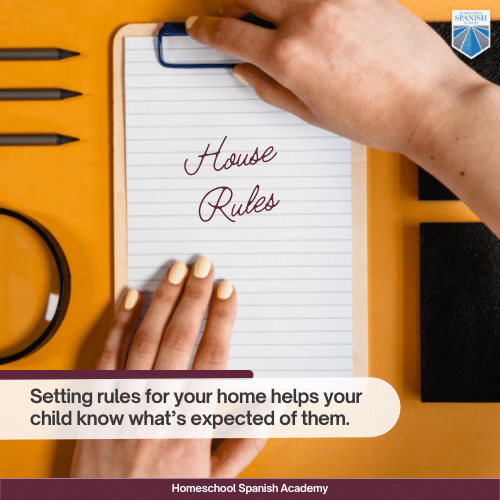
5. Help Them Develop Patience
I know that this is a super suggestion, but much harder than it sounds. If kids have a common characteristic between them all is that they lack patience. I learned that from my daughters, but also live it every day with my students. And that’s okay, they’re kids, they experience time in a whole different way than adults, and waiting is the worst thing you can ask from them.
Dr. Michael Osit says that “it’s especially important for parents to start teaching patience in the toddler years […] to develop tolerance for the feeling of impatience.”
Start by making them wait a little bit about small things, and then keep making the waiting time a bit longer. When they get mad about it, talk to them about the emotion that they’re feeling and help them to identify and control it. Finally, you can also engage with them in activities that don’t have immediate results and promote patience, such as solving puzzles, building with Legos, or planting a flower and taking care of it.
The science is clear—learning another language will have a direct positive impact on your child’s academic achievement. Compared to those without an additional language, bilingual children have improved reading, writing, and math skills, and they generally score higher on standardized tests. Sign up for a free trial Spanish class today. ➡️
6. Implement Consistent Routines
I’m a teacher, I love teaching, and I admire the work teachers do. I just think it’s amazing to dedicate your life to educating other people’s kids. But, do you know who are the teachers that I admire the most? Preschool teachers. Do you want to know why? Because they have such control of their groups. Once I had to cover for an absent preschool teacher, and those little kids nearly ate me alive. I had no idea how to control them. I had no routines for them.
The secret of good preschool teachers is that they never have an empty moment in their days. From the moment they arrive in the classroom, to the moment they go home, preschool kids are always following a routine. Perhaps they sing a good morning song to start the day, then they clean their desks and put their backpacks away, then whatever goes next in their day.
Routines calm kids because they know what to do and what’s next. They make it easier to deal with specific stressful moments of the day such as the morning routine and the go-to-bed routine. Once they have a consistent routine it’s easier for them to simply follow it and focus on what they already know how to do.
Reap the Rewards of Raising a Calmer Child at Home
Homeschool Spanish Academy is an online school committed to supporting parents and families. We strongly believe that “home shapes the child” and that “education starts at home.” For this reason, you can find here useful information about how to better raise your kids, to help them to be happier and calmer.
Choose the strategy or strategies that you think fit better for your own specific family situation and try them at home. I can tell you that they have worked in my own family and I’m pretty confident that they may as well work in yours. Raising a calmer child is an achievable goal and the benefits your kid will get for it are plenty and varied.
Join one of the 40,000 classes that we teach each month and you can experience results like these…

“This is the best way for your kid to learn Spanish. It’s one-on-one, taught by native Spanish speakers, and uses a curriculum.”
– Sharon K, Parent of 3

“It’s a great way to learn Spanish, from native Spanish speakers in a 1-on-1 environment. It’s been fairly easy to schedule classes around my daughter’s other classes. The best value for us has been ordering multiple classes at a time. All the instructors have been great!”
– Cindy D, Parent of 3

“HSA offers very affordable, quality, one on one classes with a native speaker. My son has greatly benefited from taking classes. We have seen his confidence increase as well as his pronunciation improve, because he learns from a native Spanish speaker. HSA has quick, personal customer service. Our family has been very pleased with our experience so far!”
– Erica P. Parent of 1
Find more educational content for families!
- 7 Powerful Reasons Why Bilingualism in Children MattersPowerful Reasons Why Bilingualism in Children Matters
- Fall En Español: Exploring Autumn Activities for Kids
- Fun and Language: Spanish Playdates for Kids
- Milestone Moments: Tracking Kids’ Spanish Progress
- Building Blocks: Kid-Friendly Spanish Grammar
- How to Keep Up with Spanish During Breaks and Vacations
- Top 5 Spanish Grammar Games to Improve Your Language Skills
- Summer Family Activities: Tips and Ideas for The Whole Family
- Language Learning with Netflix: How to Use the Chrome Extension - April 18, 2024
- 23 Common Spanish Prepositions You Can Use Today - March 27, 2024
- 25 Common Subjunctive Phrases in Spanish Conversation - March 21, 2024




